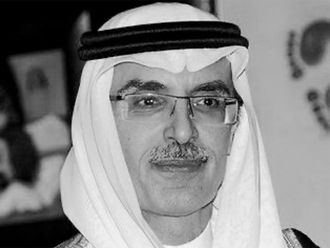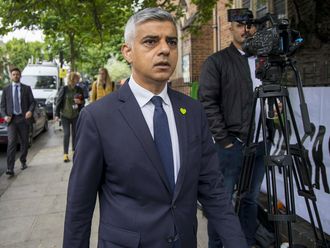Jeddah: Osama Bin Laden led a battalion of Arab volunteers fighting as mujahideen against the Soviet forces occupying Afghanistan in the 1980s, while others joined local forces in civil wars in the 1990s in Bosnia and Chechnya.
At first, Bin Laden and the other fighters were lionized in the Saudi press and praised by the kingdom’s powerful clergy.
But even before he dispatched 15 young Saudis and four other Arabs to carry out the September 11, 2001, attacks on the United States, Bin Laden had turned against the ruling Al Saud family, mainly because of its cozy relationship with the West.
“They don’t want to repeat the same mistake they made in Afghanistan. Young men went there and learned to fight with many groups of jihadists. Some of those groups accused Islamic countries of being infidels and the young people were influenced by that and went back to their countries and caused problems,” a Saudi who fought in Afghanistan said.
The effect of September 11 and a series of attacks by Al Qaida inside Saudi Arabia from 2003 to 2006 heightened the government’s alarm just as a new generation crossed the permeable border with Iraq to fight against Shiite militias and occupying Western forces.
The result was a crackdown on militants that included those who had fought in Iraq, and a fatwa from the Grand Mufti against travelling abroad to wage jihad.
In the years since, some of the thousands of suspected militants arrested by the Interior Ministry who have been tried in a special criminal court were accused of travelling to Iraq to fight alongside Al Qaida.
While state-affiliated clerics have spoken out against fighting abroad, they have also used strong language to denounce the Al Assad government and urge support for Syrians.
Shaikh Abdullah Al Mutlaq, a member of the Senior Council of Ulama, said that those in charge of carrying out the fighting and jihad in Syria are the Free Syrian Army, “who must be supported”.
The talk in Saudi Internet chat rooms do not focus on such distinctions.
A Saudi who fought in Afghanistan said Saudis were going to Syria but under the radar of the state. “The youth of jihad don’t listen to the Council of Senior Clerics,” he said.
The approbation of society at large was a different matter, however.
“For me personally, if it were not for my family and current circumstances, I would have gone. The banner is clear for jihad. These are Alawites, hostile toward the Sunnis and Islam,” he added. “The numbers (jihadists) will be a lot less than the past. In the past the fighter goes and his family is proud of him, now instead they worry about the issue.”









